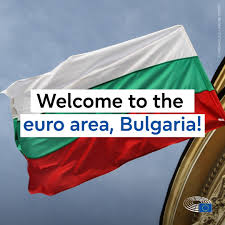Italy greenlights Red Sea mission: A strategic response to protect European commerce

Rome The Italian Parliament approved three new major international missions: Levante, Eunavfor Aspides and Euam Ukraine. The approval of these missions marks a significant step towards expanding Italy’s involvement in global affairs.
“Operation Levante” seeks to provide humanitarian aid to Gaza, whereas “Operation Aspides” (Greek for ‘shield’) aims to protect Red Sea shipping from Houthi attacks.
All parts of the Aspides motions were presented and put to the vote, passing the Italian mission in the Red Sea by an overwhelming 271 votes for, and 6 against. The point of the resolution by the opposition party, the Democratic Party, on the restoration of United Nations Relief and Works Agency for Palestine Refugees in the Near East (UNRWA) funds for non-governmental organisations operating in Palestine and Israel, however, was rejected.
The Minister of Foreign Affairs and International Cooperation, Antonio Tajani, asserted that: “Aspides will act with tasks of a defensive nature; the mission will therefore not be able to undertake preventive actions. Non-executive tasks are foreseen”.
Tajani added: “Aspides is not directed against anyone, but in defence of a principle: the freedom and safety of navigation. Only by enforcing this principle is it possible to ensure security and well-being in the region.”
The operational base will be on the Caio Duilio, the Navy destroyer which intercepted and shot down a Houthi drone in recent days.
These global operations will enhance Italy’s capacity for involvement in the Red Sea region. “Operation Levante” was established to provide a military apparatus designed for humanitarian interventions to assist the civilian population of the Gaza Strip. According to the report of the Foreign and Defence Commissions of Montecitorio, on the Resolution of the Council of Ministers regarding Italy’s participation in further international missions for the year 2024, the operation will offer support to mitigate the risk of heightened tensions amid Israel’s aggression on Gaza.
These contributions, in line with the objectives defined by the Foreign Affairs Council of the European Union (EU) at its meeting on 19 February, 2024, will include humanitarian interventions aimed at supporting local civilian populations. Stressing Israel’s right to self-defence in accordance with international and humanitarian laws, the mission emphasises the urgent need for a humanitarian pause that could pave the way for a durable ceasefire, ensuring the unconditional freedom of hostages and facilitating humanitarian aid.
According to the same report, “Operation Aspides” “is part of a multi-domain device in presence, surveillance and security initiatives in the area of ??the Red Sea, Persian Gulf and north-western Indian Ocean”. Aspides will be under Greek leadership, with Italy assuming tactical command over the missions.
The decision to initiate Aspides was made during a Foreign Affairs Council meeting aiming to restore and ensure free navigation in the Red Sea and Persian Gulf. This move aligns with United Nations Security Council (UNSC) Resolution 2722, passed earlier this year, which demands an immediate halt to Houthi attacks and reasserts the rights of member states, under international law, to protect their vessels against assaults that threaten navigation freedoms and rights.
Italy, along with some other European nations, supports these operations against the Houthi blockade in the Red Sea, given their significant economic vulnerability to these disruptions.
Indeed, the targeted missile attacks by the US and the UK, which targeted Houthi bases and strongholds, has underscored the differing viewpoints within the EU its response to the crisis. While countries like Germany and the Netherlands lean towards active military engagement, Italy, Spain, and France adopt a stance of military neutrality. Nonetheless, they are willing to deploy naval assets to patrol and secure the Strait area.
These differences have implications for naval trade by significantly impacting global supply chains and commodity flows. The Suez Canal is a crucial global trade corridor linking major Asian manufacturers with the European market. Italy, in particular, relies heavily on this route, with around 40 per cent of the country’s imports and exports passing through this Canal, which accounts for 12 per cent of the worldwide sea traffic. The ongoing blockade threatens to disadvantage Italy’s principal ports by shifting trade flows towards Northern European hubs, like Rotterdam and Hamburg, which benefit from alternative routes circumnavigating Africa.
The effects of these incidents have extended beyond Italy, causing widespread consequences around the world. Although the global commodities market has remained largely stable without significant fluctuations, there has been a noticeable increase in transportation costs. Since the start of the year, the World Container Index (WCI), which serves as a benchmark for the cost of shipping containers across major East-West trade routes, has experienced a significant rise of approximately 40 per cent, escalating from $2,700 to $3,500.
Luca Longhi, head of Total Return Portfolio at Banca Generali, noted that: “The first ‘illustrious victims’ of supply chains are in the automotive sector, with Tesla having to suspend production at the Gigafactory in Berlin and other brands halting production in Turkiye, the main production hub in the Mediterranean.”
The Banca Generali expert concluded that: “If the current situation is not resolved quickly, it would again trigger the risk of higher inflation.”





